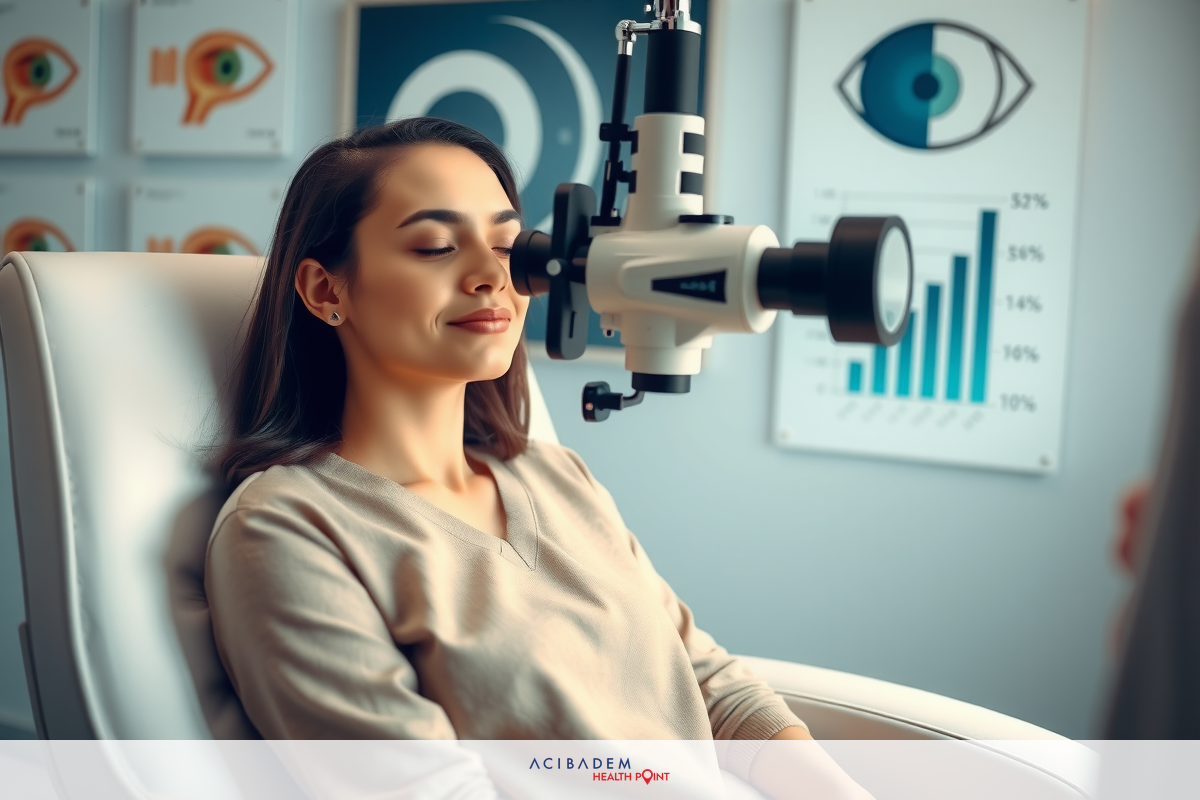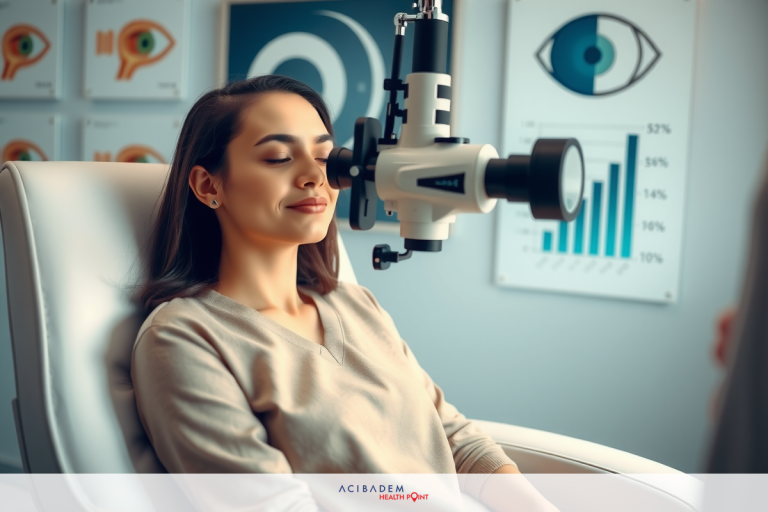Can Laser Eye Surgery Fail?
Can Laser Eye Surgery Fail? Laser eye surgery, a popular method for vision correction, is not infallible. Despite its widespread use and generally high success rates, the possibility of failure exists. This eventuality may stem from various factors like individual health conditions, intraoperative complications or even post-operative care mishaps.
Various risks accompany laser eye surgery ranging from minor side effects to severe complications. It’s crucial to understand these potential hazards before deciding on this treatment option. Understanding the typical outcomes and success rates can also provide valuable insight into what one might expect after undergoing this procedure.
This article aims to shed light on these aspects without diving too deep into medical jargon but while still providing accurate and relevant information for those considering laser eye surgery.
Understanding Laser Eye Surgery
Laser eye surgery presents a modern solution to common vision problems such as myopia, hypermetropia and astigmatism. This procedure utilizes a specialized laser to reshape the cornea, which is the clear front part of the eye responsible for focusing light on the retina. The reshaping process adjusts how light enters your eyes, leading to improved vision.
The most prevalent form of laser eye surgery is LASIK (laser-assisted in situ keratomileusis). It begins with creating a thin flap in the cornea using either another laser or a microkeratome blade. After lifting this flap, pulses from an excimer laser remove microscopic amounts of tissue from the cornea. Each pulse can correct around 0.25 diopters of refractive error – quite precise indeed! Once complete, they return the flap back into position where it adheres naturally without stitches.
Despite this seemingly straightforward procedure, potential risks do exist that any prospective patient should consider carefully before proceeding with surgery. These complications include dry eyes due to decreased tear production post-operation; glare or halos appearing around lights; double vision or other visual disturbances; regression causing one’s vision to revert towards its original state; rare cases might even experience loss of best-corrected visual acuity (BCVA), meaning glasses or contact lenses don’t provide as sharp a vision after surgery compared with before.
On balance though, understanding these risks against success rates paints an overall positive picture for those considering this treatment option. Majority patients report satisfactory outcomes following their procedures between 85% and 90% achieving uncorrected visual acuity (UCVA) of 20/20 or better and up to approximately 96% reaching UCVA of 20/25 or better one year post-surgery according to various studies over recent years.
While not entirely free from potential complications nor guaranteed successful for every individual undertaking it, laser eye surgery has proven a highly effective method for vision correction. Through understanding the procedure and its potential outcomes – both positive and adverse – you are better equipped to make an informed decision on whether this route is the right one for your personal circumstances.
Potential Risks and Complications
The decision to undergo laser eye surgery should not be made lightly, as the procedure does carry potential risks and complications. The most common side effect is dry eyes, which can persist for several months postsurgery. This condition occurs due to reduced tear production resulting from corneal nerves getting severed during the creation of the corneal flap or ablation process.
Another frequent complication is temporary visual disturbances such as glare, halos around lights, or even double

vision. These symptoms usually subside within a few weeks after surgery but might last longer in some cases. Other more serious risks include epithelial ingrowth where cells grow underneath the flap possibly causing blurred vision; diffuse lamellar keratitis (DLK), an inflammatory response often referred to as “sands of Sahara” because it resembles sand particles under a microscope; ectasia, a bulging out of the cornea leading to distorted vision; and occasionally infection though rare with stringent sterilization techniques employed these days.
There are also instances when laser eye surgery may lead to undercorrections or overcorrections – meaning too little or too much tissue was removed respectively during surgery – requiring additional procedures called enhancements using glasses or contact lenses temporarily till then. A less common issue could be astigmatism caused by uneven tissue removal which again might necessitate further treatment.
In terms of safety measures taken against these complications, laser eye clinics follow rigorous protocols before performing any surgical procedures. These encompass comprehensive pre-operative assessments determining whether someone qualifies for this type of operation based on their ocular health status aside from refractive errors needing correction like thin corneas potentially increasing risk factors among others.
While many people successfully undergo laser eye surgery without significant issues every year
demonstrating its overall safety margin being high indeed still understanding potential problems remains key before deciding upon this course of action allowing one to weigh benefits against possible downsides effectively making a well-informed choice about their vision correction options.
Success Rates and Outcomes
When evaluating the viability of laser eye surgery, one must consider its success rates and outcomes. A significant number of patients report improved vision following their procedures, with many achieving a
visual acuity of 20/20 or better. This high level of satisfaction is largely due to advancements in technology that have increased the precision and predictability of results.
However, it’s important to note that success doesn’t necessarily mean achieving perfect vision. For some people, an acceptable outcome might be reducing their dependence on glasses or contact lenses rather than eliminating them entirely. Others may still need to use reading glasses due to presbyopia – a natural agerelated loss of focusing ability for near objects which isn’t correctable by laser eye surgeries currently.
While most people experience significantly improved vision after laser eye surgery, not everyone will achieve optimal results. The initial prescription strength plays a role here; those with more severe refractive errors are less likely to achieve 20/20 vision compared with individuals having milder prescriptions preoperatively though they usually do notice substantial improvements nevertheless making daily life easier without needing corrective eyewear as before.
In terms of long-term outcomes, most people maintain stable vision years following surgery barring any other ocular conditions affecting eyesight like cataract formation among older adults where this clouding lens condition influences visual quality independently from corneal refraction corrected through these surgeries earlier.
Despite potential risks and variable patient experiences, the overall success rates for this ophthalmological treatment remain impressively high. Millions worldwide have benefited from enhanced sight since its late twentieth-century inception, changing countless lives along the way.
Frequently Asked Questions
What is the success rate of laser eye surgery?
Majority patients report satisfactory outcomes following their procedures - between 85% and 90% achieving uncorrected visual acuity (UCVA) of 20/20 or better and up to approximately 96% reaching UCVA of 20/25 or better one year post-surgery according to various studies over recent years.
Are there any potential risks or complications associated with this procedure?
Yes, while generally safe, there are possible risks such as temporary dry eyes, glare around lights, overcorrection or undercorrection requiring further procedures and rarely loss of best-corrected visual acuity. However, stringent safety protocols minimize these incidences significantly.
Can everyone undergo laser eye surgery for vision correction?
Not every individual qualifies for laser eye surgery. Factors like your age, health condition, stability of refractive error among others determine whether you're a suitable candidate for this procedure.
Is the effect from laser eye surgery permanent?
For most people who undergo this treatment option barring any other ocular conditions affecting eyesight later on like cataracts among older adults maintain stable vision years following their surgeries. Please note that these answers are intended for informational purposes only and do not constitute medical advice. Always consult a healthcare professional before making decisions related to your health.








